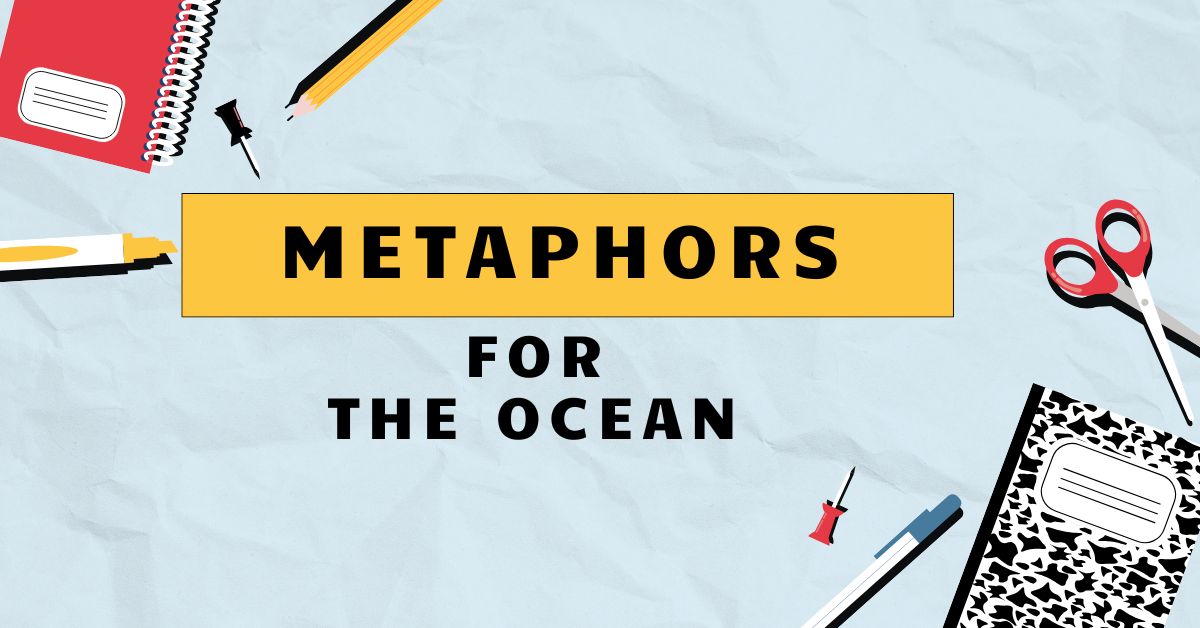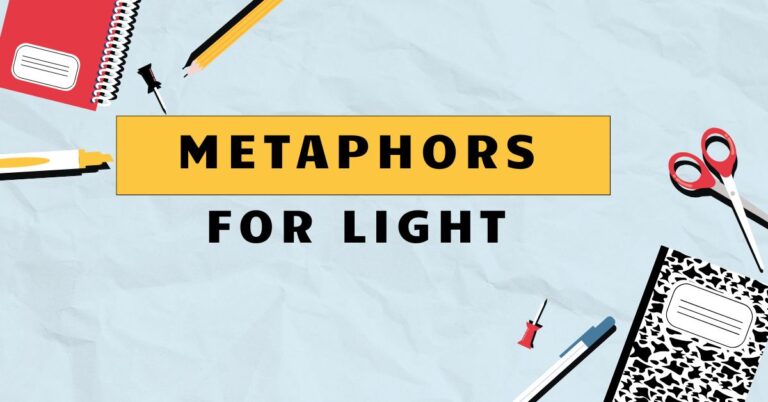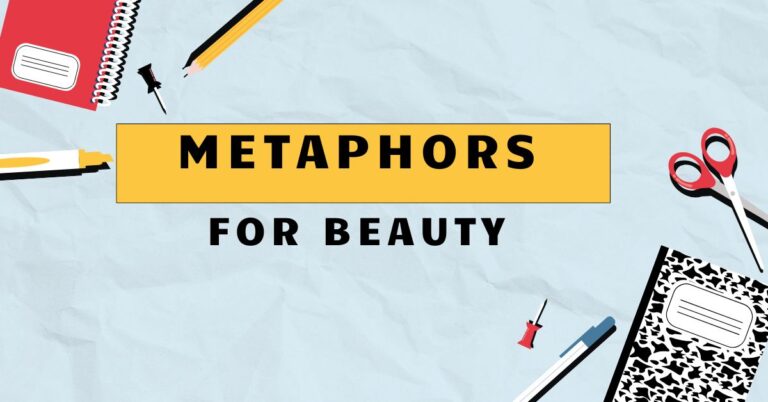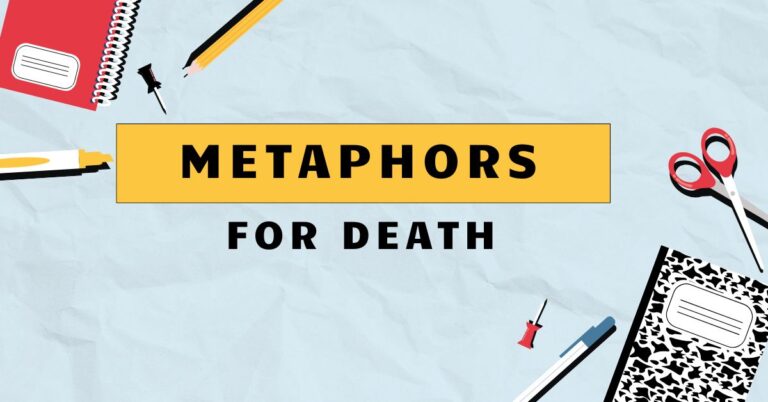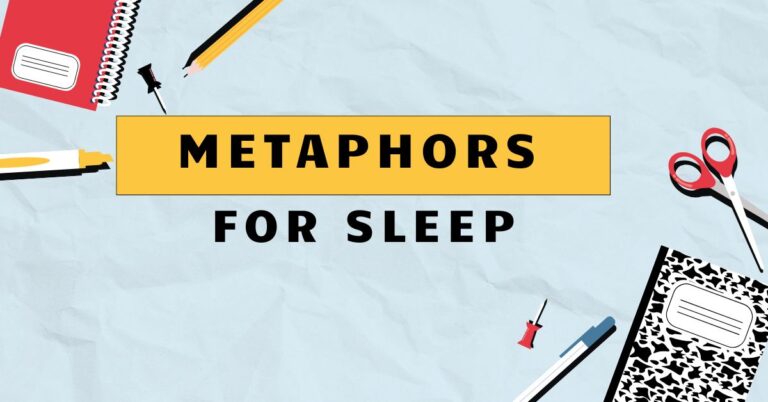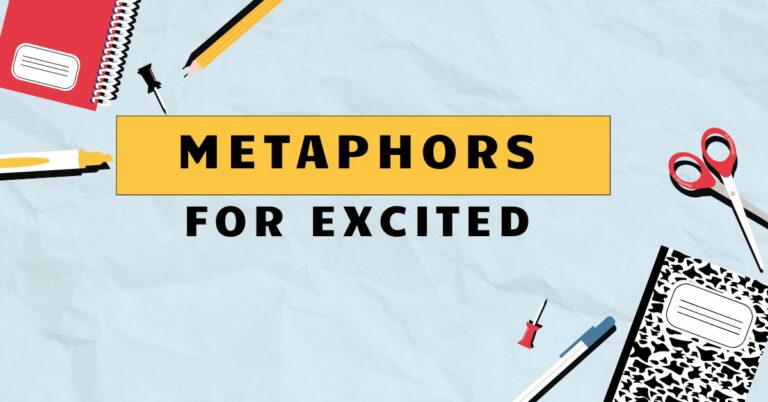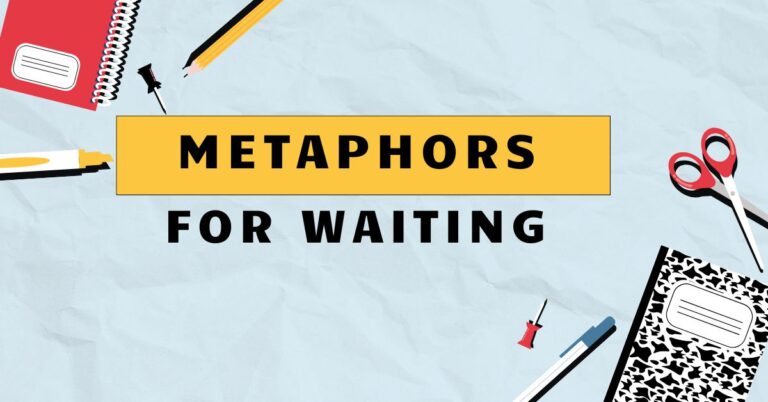47 Ocean Metaphors: Exploring Figurative Language & Grammar
Metaphors comparing aspects of life, emotions, or situations to the ocean are prevalent in literature, everyday speech, and even scientific discourse. Understanding these metaphors enriches our comprehension of language and allows us to appreciate the depth and complexity of both the ocean and the concepts it represents.
This article delves into the world of ocean metaphors, exploring their grammatical structure, various types, and usage rules. It is designed for English language learners, literature enthusiasts, and anyone interested in enhancing their understanding of figurative language.
Table of Contents
- Introduction
- Definition of Ocean Metaphors
- Structural Breakdown
- Types and Categories of Ocean Metaphors
- Examples of Ocean Metaphors
- Usage Rules for Ocean Metaphors
- Common Mistakes with Ocean Metaphors
- Practice Exercises
- Advanced Topics
- FAQ
- Conclusion
Introduction
The ocean, with its vastness, power, and mystery, has always been a rich source of inspiration for metaphors. We use ocean-related imagery to describe a wide range of experiences, from the depths of our emotions to the challenges we face in life.
Understanding how these metaphors work is crucial for interpreting literature, comprehending nuanced communication, and expressing ourselves more vividly. This article provides a comprehensive guide to ocean metaphors, covering their structure, types, usage rules, and common pitfalls.
Whether you’re a student, a writer, or simply someone interested in language, this guide will equip you with the knowledge and skills to navigate the sea of ocean metaphors with confidence.
Definition of Ocean Metaphors
An ocean metaphor is a figure of speech that uses the ocean or its characteristics (e.g., waves, tides, depth, creatures) to represent something else. This comparison is not literal but suggestive, implying a similarity between the ocean and the concept being described.
Metaphors, unlike similes, do not use words like “like” or “as” to make the comparison explicit; instead, they directly equate the ocean to the other concept.
Ocean metaphors function by transferring qualities associated with the ocean – such as its immensity, unpredictability, or power – to the subject being described. This creates a vivid and often emotionally resonant image in the reader’s or listener’s mind.
The effectiveness of an ocean metaphor depends on the shared understanding of the ocean’s characteristics and the appropriateness of the comparison to the subject at hand. The context in which the metaphor is used is also crucial for its interpretation.
Ocean metaphors can be found in various contexts, including literature (poetry, novels, plays), everyday conversation, journalism, and even scientific writing (though less frequently). They serve to add depth, emotion, and clarity to communication, making abstract concepts more relatable and understandable.
Structural Breakdown
The structure of an ocean metaphor typically involves two key elements: thetenorand thevehicle. The tenor is the subject being described, while the vehicle is the ocean or its related imagery that is used to represent the tenor.
The relationship between the tenor and the vehicle is not one of direct equivalence but rather of implied similarity. The metaphor works by highlighting certain shared qualities or characteristics between the two.
For example, in the sentence “Her grief was a vast ocean,” the tenor is “her grief,” and the vehicle is “a vast ocean.” The metaphor suggests that her grief is immense, deep, and overwhelming, similar to the vastness of the ocean. The effectiveness of this metaphor lies in the shared understanding of the ocean’s immensity and its capacity to evoke feelings of sadness and loss.
The grammatical structure of an ocean metaphor can vary. It can be expressed through nouns, verbs, adjectives, or even entire phrases.
The key is that the ocean imagery is used figuratively rather than literally. The context of the sentence or passage will usually make it clear that a metaphor is being used.
Let’s consider some common grammatical patterns:
- Noun as Metaphor: “The stock market was a sea of red.” (The stock market is being compared to a turbulent, losing ocean)
- Verb as Metaphor: “He drowned in paperwork.” (Being overwhelmed is being compared to drowning)
- Adjective as Metaphor: “The deep secrets of the past.” (Secrets are being described as having the unfathomable depth of the ocean)
- Phrase as Metaphor: “She navigated the rough seas of her career.” (Career challenges are being compared to a dangerous ocean voyage)
Types and Categories of Ocean Metaphors
Ocean metaphors can be categorized based on the specific aspect of the ocean being used and the concept it represents. Here are some common categories:
The Ocean as Emotion
This is one of the most common uses of ocean metaphors. The ocean’s vastness, depth, and turbulence make it an ideal symbol for intense emotions such as grief, love, anger, and fear.
The ebb and flow of the tide can also represent the fluctuating nature of emotions.
The Ocean as Life’s Journey
The ocean voyage is a classic metaphor for the journey of life, with its challenges, uncertainties, and opportunities. The ship represents the individual, and the sea represents the world and its experiences.
Navigating the ocean can symbolize overcoming obstacles and achieving goals.
The Ocean as a Problem or Challenge
The ocean’s power and unpredictability can be used to represent difficult problems or challenges. Being “lost at sea” can symbolize feeling confused or overwhelmed, while “swimming against the tide” can represent struggling against opposition.
The Ocean as a Mystery
The depths of the ocean are often used to represent the unknown or the mysterious. The phrase “uncharted waters” can refer to unexplored territories or unfamiliar situations.
The ocean’s hidden creatures and unexplored regions contribute to its aura of mystery.
The Ocean as a Resource
The ocean can also be used to represent a source of abundance, opportunity, or wealth. The phrase “a sea of opportunities” suggests that there are many possibilities available.
The ocean’s resources, such as fish and minerals, can symbolize prosperity and sustenance.
Examples of Ocean Metaphors
The following tables provide examples of ocean metaphors categorized by their type. Each example illustrates how the ocean’s characteristics are used to represent different concepts.
Table 1: The Ocean as Emotion
This table showcases how the ocean is used to describe different emotional states and feelings.
| Metaphor | Explanation |
|---|---|
| Her eyes were a sea of tears. | Her sadness was overwhelming and abundant. |
| He was drowning in despair. | He was completely consumed by hopelessness. |
| Their love was a deep ocean. | Their love was profound, unwavering, and full of depth. |
| She felt adrift in a sea of anxiety. | She was lost and overwhelmed by her anxiety. |
| His anger was a stormy sea. | His anger was violent, unpredictable, and destructive. |
| The news sent her into uncharted waters of grief. | The news caused her to experience a grief she had never known. |
| He was battling a tidal wave of emotions. | He was struggling to cope with intense feelings. |
| Her heart was a calm sea after the storm. | She felt peaceful and serene after a period of turmoil. |
| He dove into the depths of her sadness. | He tried to understand the profound sadness she was experiencing. |
| She was swimming in a sea of happiness. | She was surrounded by joy and contentment. |
| His words were a torrential downpour of emotion. | His words expressed a great deal of feeling. |
| She felt like she was sailing through a sea of tranquility. | She felt peaceful and serene. |
| His heart was a deep, dark ocean of secrets. | He held many hidden emotions and thoughts. |
| She was navigating the treacherous waters of heartbreak. | She was dealing with the pain and challenges of a broken heart. |
| His joy was a vast, boundless ocean. | His happiness was immense and limitless. |
| She felt like she was lost in a fog-covered sea of confusion. | She felt disoriented and uncertain. |
| His sorrow was an unfathomable abyss. | His sadness was deep and immeasurable. |
| She was riding the waves of excitement. | She was enjoying a period of great enthusiasm. |
| His fear was a dark, swirling vortex. | He was overwhelmed by intense dread. |
| She felt like her emotions were tossing her around like a small boat in a storm. | Her feelings were causing her to feel unstable and overwhelmed. |
| The tides of her mood shifted throughout the day. | Her emotional state changed frequently. |
| He tried to stem the tide of his rising anger. | He attempted to control his growing rage. |
| Her laughter echoed like the sound of waves crashing on the shore. | Her laughter was vibrant and resonant. |
Table 2: The Ocean as Life’s Journey
This table illustrates how the journey of life is often compared to navigating the ocean, with all its challenges and rewards.
| Metaphor | Explanation |
|---|---|
| Life is a vast ocean to explore. | Life is full of opportunities and adventures. |
| He navigated the seas of his career with skill. | He successfully managed the challenges of his career. |
| She was sailing through life with confidence. | She was living her life with assurance and determination. |
| They faced stormy seas in their relationship. | They encountered difficult challenges in their relationship. |
| He had to weather many storms in his life. | He had to endure many hardships and difficulties. |
| She’s charting a new course in her life. | She’s making significant changes and pursuing new goals. |
| He felt like he was adrift at sea, lost and without direction. | He felt disoriented and uncertain about his future. |
| She’s finally reached safe harbor after a long journey. | She’s found stability and security after a period of struggle. |
| He’s sailing against the current, defying expectations. | He’s pursuing a path that is unconventional or challenging. |
| They are voyaging into uncharted territory with their new business. | They are venturing into an area that is unfamiliar and risky. |
| His life was a long and winding river flowing into the vast ocean. | His life had many experiences leading to a grand culmination. |
| She felt like she was rowing upstream against the relentless current of life. | She felt like she was constantly struggling against life’s difficulties. |
| He was steering his ship through the fog of uncertainty. | He was navigating his life despite the lack of clarity. |
| She was tossed about by the waves of fate. | She felt like her life was controlled by external forces. |
| He was navigating the treacherous reefs of office politics. | He was dealing with the difficult and competitive aspects of his workplace. |
| She found herself in deep water when she took on the new project. | She encountered unexpected challenges and difficulties. |
| His career was sinking like a stone in the ocean. | His career was failing rapidly and irrevocably. |
| She was sailing on smooth seas after years of struggle. | She finally experienced a period of ease and prosperity. |
| He was cast adrift after losing his job. | He felt lost and without direction after being unemployed. |
| She was the captain of her own ship, in control of her destiny. | She felt empowered and responsible for her own life. |
| The tide turned in his favor after years of hardship. | His luck and circumstances improved significantly. |
| He was a lighthouse guiding others through stormy seas. | He provided guidance and support to others during difficult times. |
| She was a seasoned sailor, experienced in navigating life’s challenges. | She was skilled and resilient in dealing with life’s difficulties. |
Table 3: The Ocean as a Problem or Challenge
This table demonstrates how the ocean’s power and unpredictability are used to represent difficult situations and problems.
| Metaphor | Explanation |
|---|---|
| He was lost at sea in his research. | He felt confused and uncertain about his research. |
| She was swimming against the tide of public opinion. | She was opposing a popular belief or trend. |
| They were facing a sea of troubles. | They were dealing with many difficult problems. |
| He was drowning in debt. | He was overwhelmed by his financial obligations. |
| The project was sinking fast. | The project was failing rapidly. |
| They were navigating treacherous waters in the negotiation. | They were dealing with a complex and risky situation. |
| He felt like he was in over his head with the new responsibilities. | He felt overwhelmed and unable to handle the new challenges. |
| She was battling a rising tide of criticism. | She was facing increasing disapproval and opposition. |
| He was trying to stay afloat in the competitive job market. | He was struggling to survive and succeed in a difficult environment. |
| They were stranded on a desert island in their marriage. | They felt isolated and disconnected in their relationship. |
| He felt like he was fighting a losing battle against the waves of adversity. | He felt like he was constantly struggling against overwhelming challenges. |
| She was caught in a whirlpool of conflicting demands. | She was overwhelmed by numerous and contradictory expectations. |
| He was sinking deeper and deeper into the quicksand of despair. | He was becoming increasingly hopeless and despondent. |
| She was navigating the minefield of office politics. | She was dealing with a dangerous and unpredictable workplace environment. |
| He was trying to keep his head above water during the financial crisis. | He was struggling to survive financially during a difficult time. |
| She was facing a tsunami of challenges after the company merger. | She was dealing with a massive and overwhelming set of problems. |
| He felt like he was shipwrecked on an island of isolation. | He felt completely alone and disconnected from others. |
| She was trying to bail water out of a sinking boat. | She was attempting to fix a problem that was beyond repair. |
| He was caught in the undertow of negative emotions. | He was pulled down by overwhelming negative feelings. |
| She felt like she was walking the plank when she had to give the presentation. | She felt like she was in a precarious and dangerous situation. |
| The scandal threatened to capsize the entire organization. | The scandal risked destroying the entire organization. |
| He was floundering in a sea of red tape. | He was struggling to navigate complex bureaucratic procedures. |
| She felt like she was dangling precariously over the abyss. | She felt close to disaster or failure. |
Table 4: The Ocean as a Mystery
This table shows how the ocean represents the unknown, secrets, and hidden depths.
| Metaphor | Explanation |
|---|---|
| The truth lies hidden in the depths. | The truth is difficult to find and understand. |
| His past was an ocean of secrets. | His past was full of hidden and unknown events. |
| She was drawn to the mysteries of the deep. | She was fascinated by the unknown and the unexplained. |
| They were exploring uncharted waters in their research. | They were investigating a topic that was largely unknown. |
| His mind was an unfathomable ocean. | His thoughts and feelings were complex and difficult to understand. |
| Her motives were as murky as the ocean floor. | Her reasons were unclear and difficult to discern. |
| He was diving deep into the ocean of knowledge. | He was immersing himself in the study of a subject. |
| She felt like she was lost in a fog-covered sea of uncertainty. | She felt disoriented and unsure about what to believe. |
| His eyes were pools of mystery, reflecting untold stories. | His eyes suggested a hidden depth of experience and secrets. |
| The answer was buried deep beneath the surface. | The solution was hidden and required careful uncovering. |
| He was probing the depths of the human psyche. | He was exploring the complex and often hidden aspects of the human mind. |
| She was unearthing long-forgotten secrets from the ocean of time. | She was discovering information that had been hidden for many years. |
| His intentions were clouded like the seabed in a storm. | His reasons were unclear and difficult to understand due to turmoil. |
| She was searching for treasure in the sunken ship of the past. | She was looking for valuable insights from historical events. |
| He was descending into the abyss of the unknown. | He was venturing into a realm of complete mystery. |
Table 5: The Ocean as a Resource
This table demonstrates how the ocean can represent abundance, opportunity, and wealth.
| Metaphor | Explanation |
|---|---|
| The internet is a sea of information. | The internet contains a vast amount of information. |
| The city is a sea of faces. | The city is filled with a large number of people. |
| There was a sea of opportunities in the new market. | There were many possibilities for success in the new market. |
| The company was swimming in profits. | The company was making a lot of money. |
| The library was an ocean of knowledge. | The library contained a vast amount of knowledge. |
| The conference was a sea of innovation. | The conference showcased a multitude of new ideas and technologies. |
| The art gallery was a sea of colors and creativity. | The art gallery displayed a wide range of visual art and artistic talent. |
| The school was a nurturing sea for young minds. | The school provided a supportive environment for learning and growth. |
| The festival was a sea of music and celebration. | The festival was filled with a variety of musical performances and festive activities. |
| The job market was a vast ocean for skilled workers. | There were numerous employment opportunities for qualified individuals. |
| His mind was a treasure trove of ideas, like the ocean floor teeming with hidden gems. | His mind was full of valuable and innovative thoughts. |
| The city’s cultural scene was a vibrant ecosystem, like a coral reef teeming with life. | The city had a diverse and thriving cultural community. |
| The project was a goldmine of potential, like discovering a sunken galleon filled with treasure. | The project had the potential to generate significant wealth and success. |
| The company’s research department was a fertile ground for innovation, like a nutrient-rich sea nurturing new forms of life. | The company’s research department fostered creativity and produced groundbreaking discoveries. |
| The event was a wellspring of networking opportunities, like a gathering of ships from all corners of the globe. | The event provided ample opportunities to connect with people from various backgrounds and industries. |
Usage Rules for Ocean Metaphors
When using ocean metaphors, it’s important to ensure that the comparison is appropriate and effective. Here are some guidelines:
- Relevance: The ocean imagery should be relevant to the concept being described. The shared characteristics between the ocean and the subject should be clear and meaningful.
- Clarity: The metaphor should be easy to understand. Avoid using obscure or overly complex ocean imagery that may confuse the reader or listener.
- Originality: While some ocean metaphors are common, try to use them in a fresh and original way. Avoid clichés that have lost their impact.
- Context: The context in which the metaphor is used is crucial. Ensure that the metaphor fits the tone and style of the writing or speech.
- Consistency: Avoid mixing metaphors or using multiple metaphors that contradict each other. Maintain a consistent image throughout the passage.
Exceptions and Special Cases:
- Extended Metaphors: An extended metaphor is a metaphor that is developed over several lines or paragraphs. In such cases, it’s important to maintain consistency and avoid introducing contradictory imagery.
- Submerged Metaphors: A submerged metaphor is a subtle or implied metaphor that is not explicitly stated. These can be effective in creating a nuanced and evocative image, but they require careful handling to ensure that the comparison is clear.
Common Mistakes with Ocean Metaphors
Here are some common mistakes to avoid when using ocean metaphors:
- Mixed Metaphors: Combining incompatible metaphors can create a confusing and illogical image.
- Incorrect: “He was navigating the stormy seas of his career while also climbing the ladder of success.” (Mixing sea and ladder imagery)
- Correct: “He was navigating the stormy seas of his career.”
- Correct: “He was climbing the ladder of success in his career.”
- Clichés: Overusing common ocean metaphors can make your writing sound unoriginal and predictable.
- Cliché: “He was in deep water.”
- Better: “He was facing unexpected financial difficulties.”
- Inappropriate Comparisons: Using ocean imagery that doesn’t fit the subject can create a jarring effect.
- Incorrect: “Her joy was a dark and stormy sea.” (Joy is usually associated with positive imagery)
- Correct: “Her grief was a dark and stormy sea.”
- Lack of Clarity: Using obscure or overly complex ocean imagery can confuse the reader.
- Unclear: “His argument was a bathyal zone of epistemology.”
- Clearer: “His argument was complex and difficult to understand.”
Practice Exercises
Test your understanding of ocean metaphors with the following exercises.
Exercise 1: Identify the Metaphor
Identify the ocean metaphor in each sentence and explain what it means.
| Question | Answer |
|---|---|
| 1. The project was sinking fast. | The project was failing rapidly. |
| 2. She was swimming against the tide of public opinion. | She was opposing a popular belief or trend. |
| 3. His anger was a stormy sea. | His anger was violent and destructive. |
| 4. The internet is a sea of information. | The internet contains a vast amount of information. |
| 5. He felt adrift at sea after losing his job. | He felt lost and without direction. |
| 6. Her eyes were a sea of tears. | She was very sad and crying a lot. |
| 7. The negotiation was a treacherous sea. | The negotiation was difficult and risky. |
| 8. He was drowning in paperwork. | He was overwhelmed by his work. |
| 9. She navigated the seas of her career with determination. | She managed the challenges of her career successfully. |
| 10. The truth lies hidden in the depths of the investigation. | The truth is difficult to find. |
Exercise 2: Complete the Metaphor
Complete the following sentences with an appropriate ocean metaphor.
| Question | Answer |
|---|---|
| 1. After years of struggle, she finally reached __________. | safe harbor |
| 2. He was __________ in debt. | drowning |
| 3. The city was __________ of faces. | a sea |
| 4. His past was __________ of secrets. | an ocean |
| 5. She was __________ the rising tide of criticism. | battling |
| 6. He felt like he was __________ in a sea of confusion. | lost |
| 7. The project was __________ fast. | sinking |
| 8. They were __________ uncharted waters in their research. | exploring |
| 9. Her heart was a __________ after the storm. | calm sea |
| 10. He was trying to __________ during the financial crisis. | keep his head above water |
Exercise 3: Rewrite with a Metaphor
Rewrite the following sentences using an ocean metaphor.
| Question | Answer |
|---|---|
| 1. He was very angry. | His anger was a stormy sea. |
| 2. She felt lost and uncertain. | She felt adrift at sea. |
| 3. The company was making a lot of money. | The company was swimming in profits. |
| 4. The situation was very difficult and risky. | They were navigating treacherous waters. |
| 5. The internet contains a vast amount of information. | The internet is a sea of information. |
| 6. He was struggling with his emotions. | He was battling a tidal wave of emotions. |
| 7. The truth was difficult to find. | The truth lies hidden in the depths. |
| 8. She was overwhelmed by her responsibilities. | She was drowning in responsibilities. |
| 9. He was opposing a popular trend. | He was swimming against the tide. |
| 10. They encountered many challenges in their relationship. | They faced stormy seas in their relationship. |
Advanced Topics
For advanced learners, consider exploring these more complex aspects of ocean metaphors:
- Symbolism: The ocean can symbolize different things depending on the context and culture. Research the symbolic meaning of the ocean in various literary works and cultural traditions.
- Archetypes: The ocean is a powerful archetype that represents the unconscious, the feminine, and the source of life. Explore the Jungian interpretation of the ocean as an archetype.
- Literary Analysis: Analyze how authors use ocean metaphors to create specific effects in their writing. Consider the use of imagery, symbolism, and tone.
- Historical Context: Examine how the use of ocean metaphors has changed over time. Consider the influence of historical events, scientific discoveries, and cultural shifts.
FAQ
Here are some frequently asked questions about ocean metaphors:
- What is the difference between a metaphor and a simile?
A metaphor directly equates two things, while a simile uses “like” or “as” to make a comparison. For example, “Her eyes were a sea of tears” is a metaphor, while “Her eyes were like a sea of tears” is a simile.
- Why are ocean metaphors so common?
The ocean is a powerful and versatile symbol that can represent a wide range of concepts and emotions. Its vastness, depth, and unpredictability make it an ideal source of metaphorical imagery.
- How can I create original ocean metaphors?
To create original ocean metaphors, try to think beyond the common clichés. Consider specific
specific aspects of the ocean that are relevant to the concept you’re describing, and use vivid and evocative language to create a unique image.
- Are ocean metaphors universal?
While many aspects of the ocean are universally understood, the specific symbolic meaning of the ocean can vary across cultures. Be mindful of cultural differences when interpreting or using ocean metaphors.
- Can ocean metaphors be used in scientific writing?
While less common, ocean metaphors can be used in scientific writing to explain complex concepts or illustrate certain phenomena. However, it’s important to use them sparingly and ensure that they are accurate and appropriate.
Conclusion
Ocean metaphors are a powerful tool for enhancing communication and understanding. By using the ocean’s imagery, we can add depth, emotion, and clarity to our language.
Whether you’re a student, a writer, or simply someone interested in language, mastering the art of ocean metaphors will enrich your understanding of figurative language and allow you to express yourself more vividly and effectively. So, dive into the sea of language, explore its depths, and discover the treasures that await you.

